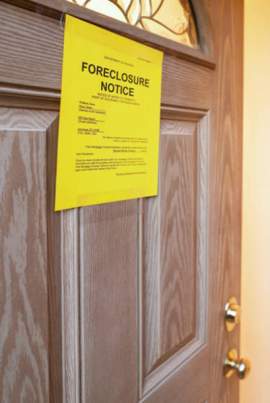
Eviction Process in Iowa

Popular In Foreclosure
Deed In Lieu Of Foreclosure Stop Foreclosure Pre Foreclosure Protecting Tenants At Foreclosure Act Of 2009 Deed In Lieu Of Foreclosure Maryland Avoid Foreclosure Foreclosure Help Eviction Process In Missouri Eviction Process In Alabama Foreclosure Process Short Sale Deed In Lieu Of Foreclosure Ohio
If you are being evicted in the state of Iowa, you may not know how to proceed. Learning about the eviction process in Iowa can help you understand your rights and options under the law. After reading this guide, you will understand the steps involved in the eviction process in Iowa and how long each step will take.
Getting Notice
Before beginning eviction proceedings in court, your landlord must first provide you with an eviction notice. The notice will tell you why the landlord wishes to evict you and, if possible, give you an opportunity to correct the situation before court proceedings begin.
If you are being evicted because of a failure to pay rent, the eviction process in Iowa requires that your landlord serve you with a three day notice. If you have breached your lease—for instance, by allowing an unauthorized subletter or keeping an unauthorized pet—you will be given a seven day notice. In both cases, you will be told how you can cure the breach or pay rent in order to avoid eviction.
Court Filings and Hearings
When the time indicated on the eviction notice has passed, if you have not met the conditions set forth in the notice, your landlord can begin the eviction process in Iowa courts by filing a complaint and summons with the district courthouse.
Eviction lawsuits, which are called “entry and detainer actions” in the state of Iowa, may be filed at any time after you have failed to cure the breaches to your lease. You will be served with a copy of the complaint (which details why you are being evicted) and the summons (which tells you when the hearing will be).
You are not required to appear at your eviction hearing, but if you fail to appear, your landlord will win by default and you will be evicted. If you win at the eviction hearing, you will not be forced to leave and your landlord may even owe you money. You should consult with a lawyer who has experience with the eviction process in Iowa to see if you may be able to win in court.
Writ of Possession
If you do not appear in court, or if your landlord wins the eviction hearing, the court will issue a writ of possession that gives your landlord permission to forcibly remove you from the premises. In a forcible removal, the sheriff will arrive at your property to keep the peace while your landlord removes your belongings from the premises.
Usually, you will only have 24 hours from the time the hearing ends to move out of your residence before facing forcible removal. However, the eviction process in Iowa allows judges to give you up to 3 days to move if you request it at the hearing and the judge agrees that you need the additional time to vacate.
If you vacate and leave personal belongings behind, they will be stored and you must pay storage costs. If you do not claim your items or pay storage costs within six months, your belongings can be sold by the sheriff's department.



















